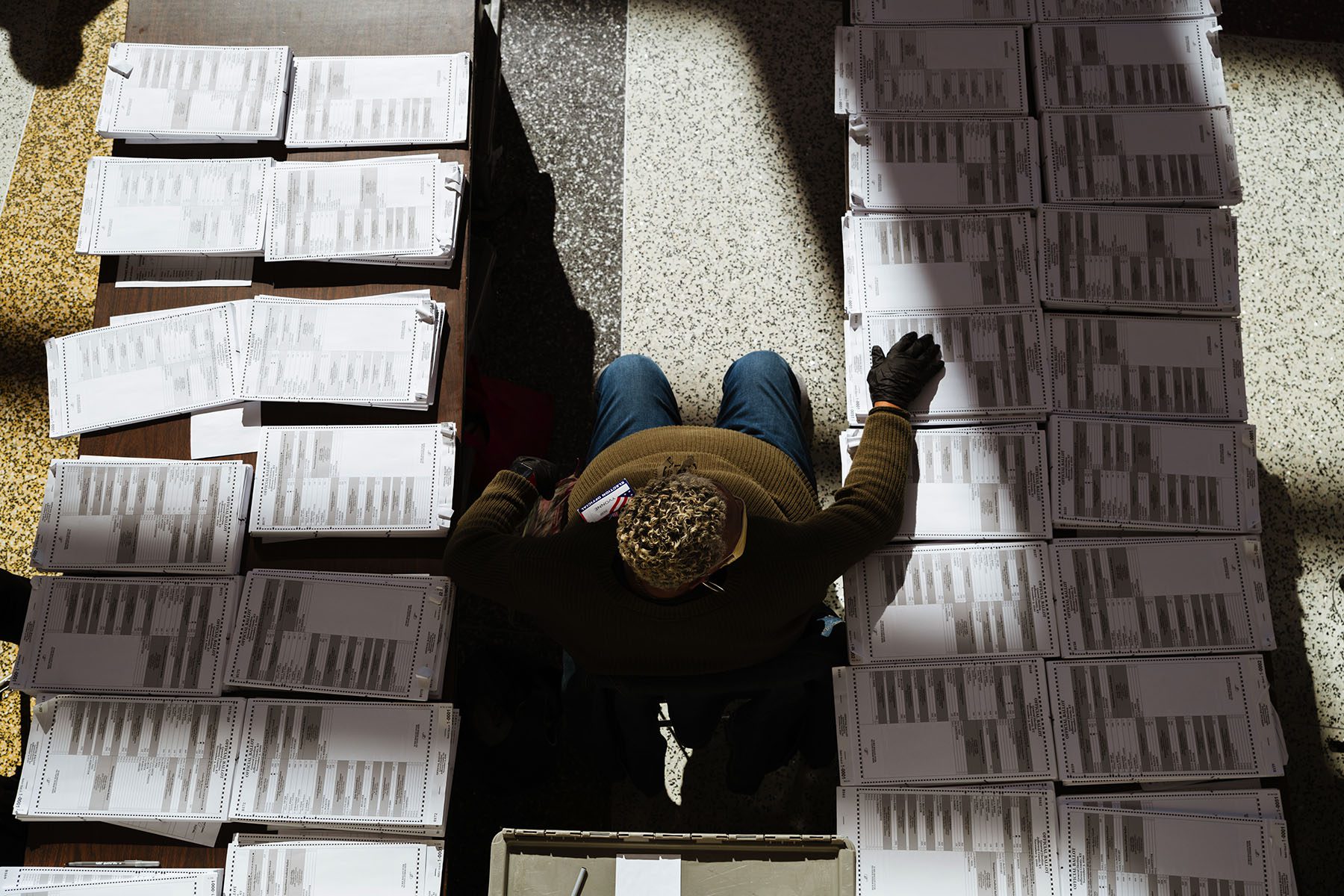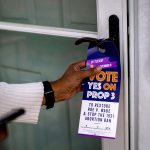GOP-controlled state legislatures have made headlines by passing a slew of restrictive voting laws ahead of the 2022 midterm elections — but there is also a raft of bills moving more quietly through Republican-led states that will put new limits on the voter-driven ballot-initiative process.
Ballot measures, also known as referendums or initiatives, are issues on state and local ballots that voters decide directly. Conservatives have used them to drive turnout by offering issues like denying LGBTQ+ people marriage equality and restricting abortion. Liberals have used them to expand Medicaid and raise the minimum wage, efforts that benefit women who are postpartum and more likely to be low-wage workers.
Progressive advocacy groups say the Republican efforts to further regulate the ballot-initiative process this year are a direct response to recent Democratic victories in otherwise conservative states. Medicaid expansion began in Missouri this month, more than a year after it was approved by voters, after Republican Gov. Mike Parson tried to block it from taking effect.
The Fairness Project, a left-leaning nonprofit organization, is launching a $5 million counter-effort Thursday that will support voter education campaigns and litigation in states including Arkansas and South Dakota, where Republican-controlled legislatures are aiming to put new restrictions on the ballot-initiative process.
Already this year, the Fairness Project is tracking at least 87 measures that have been introduced at the state level that would make passing ballot measures more difficult, and 20 have passed. Other groups tracking the issue count even more.
“These state legislatures have really started to wake up and are attacking the ballot measure process in the same way they are trying to suppress the vote, or gerrymander,” said Fairness Project Executive Director Kelly Hall.
For a group that has successfully worked on ballot measure campaigns to raise the minimum wage and expand the federal Medicaid health care program for low-income people, it is “existential to our theory of change and existential for people in places across the country where making progress in deep red states is possible through the ballot process,” she added.
In Arkansas, for example, a new law, which is already being challenged in court, prohibits paying canvassers for each signature they collect on a ballot petition, and requires them to be U.S. citizens and state residents. The Republican-controlled state legislature there also passed a resolution that will be on 2022 midterm ballots that will, if approved by voters, require future constitutional amendments on the ballot to clear a 60 percent threshold for approval instead of the current 50 percent.
South Dakota’s legislature, which is controlled by a Republican supermajority, approved a resolution that will be on the 2022 primary ballots that would likewise set a 60 percent threshold for passage on any ballot initiatives that would cost $10 million or more to implement. Republican Gov. Kristi Noem, who is considered to be a potential 2024 presidential contender, also signed laws related to the ballot process this year that, among other things, require signature petitions to be in 14-point font. It will be an additional logistical hurdle in a state that already requires petitions to be on a single page, leading to massive sheets of paper with thousands of signatures, adding to the so-called “beach-towel effect.”
The measure to approve the 60 percent threshold for future initiatives will be on the ballot in South Dakota’s 2022 primary, when more Republicans than Democrats are likely to turn out in the conservative state. That comes ahead of the November 2022 general election, when voters will decide whether to expand Medicaid coverage. South Dakota is one of 12 states that have not expanded health care coverage for more low-income adults under a provision of former President Barack Obama’s Affordable Care Act.
The Republican lawmakers who sponsored the resolution to raise the passage threshold to 60 percent say it is an effort to “oppose higher taxes and big government spending.” Proponents of Medicaid expansion say putting it on the primary ballot, and not in the general, is an attempt to rig the outcome of the vote. They lost a court challenge to push it to the general election.
Twenty-six states and the District of Columbia have some form of a ballot-initiative or referendum process, and Sandra Waltman with the South Dakota Education Association said the state, where it dates back to 1898, considers itself the “birthplace.” “Our organization is always concerned any time there is an attack on the ballot-measure process,” she said, because they consider it an “attack on direct democracy.”
The South Dakota Education Association is one of the Fairness Project’s partners in the Ballot Measure Rescue Campaign. Others include Democratic lawyer Marc Elias at the Democracy Docket, which is fighting restrictive voting laws in court, and representatives from the Mississippi NAACP, the Drug Policy Alliance, Planned Parenthood Action Fund and the American Civil Liberties Union.
Amy Scott-Stoltz, the president of the League of Women Voters of South Dakota, the state-level affiliate of a national nonprofit that encourages voting and supports progressive policy positions, described the situation there as a “power struggle between the people and the legislature.”
“Ballot initiatives are the people speaking directly about what they want, whereas the legislature is a representative body,” she said. “So in our view, the petition process, ballot initiatives, carries more weight because they come from the people and are voted on by the people directly, as opposed to through a representative.”
Though the coalition working with the Fairness Project on its Ballot Measure Rescue Campaign is largely progressive-leaning, Hall said that protecting the ballot-measure process, even though it can also be used to advance conservative causes, is important because “democratic institutions like this are a fundamental good that we believe in.”
“Being frightened of them because they might be used by people we oppose is sort of like saying, ‘Let’s not have candidate elections because sometimes people we don’t like might win,’” she said.






